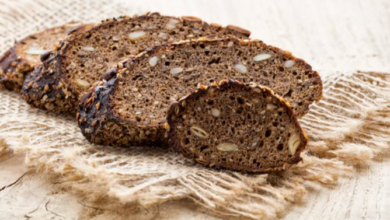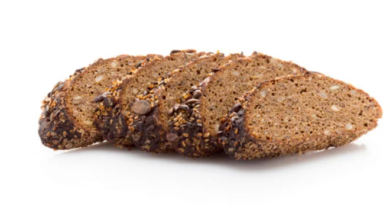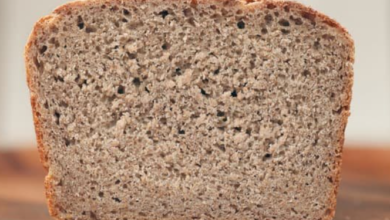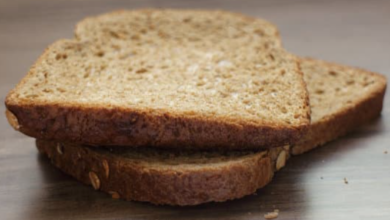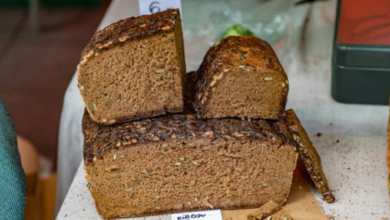Does Rye Bread Contain Yeast? Surprising Facts
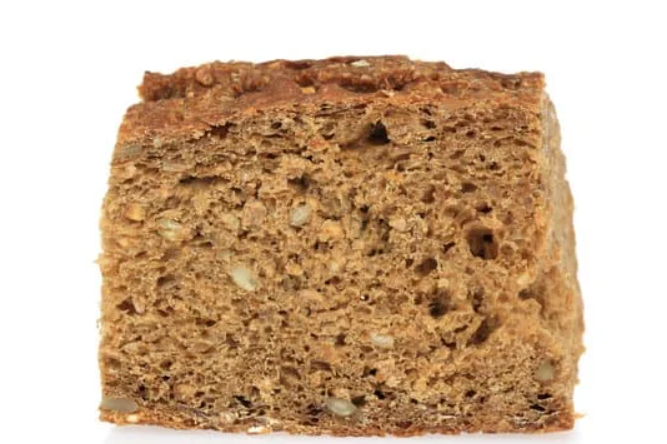
What To Know
- This type of yeast is often used in traditional rye bread recipes and imparts a distinctive sour flavor to the bread.
- It is made using a natural yeast starter, which gives the bread a distinctive sour flavor and a chewy texture.
- The fermentation process in sourdough rye bread is slower than in commercial yeast bread, resulting in a more complex and flavorful loaf.
For centuries, rye bread has been a staple in many cultures, renowned for its distinct flavor and nutritional value. However, a lingering question has perplexed bakers and bread enthusiasts alike: does rye bread have yeast? This enigmatic ingredient plays a crucial role in bread-making, and understanding its presence in rye bread is essential for unlocking the secrets of this culinary delight.
The Role of Yeast in Bread-Making
Yeast is a single-celled microorganism that consumes sugars and produces carbon dioxide and ethanol as byproducts. In bread-making, this fermentation process causes the dough to rise, creating the characteristic airy texture and aroma. Without yeast, bread would be dense and flat, lacking the lightness and flavor we have come to appreciate.
Rye Bread: A Unique Composition
Rye bread stands out from other bread varieties due to its use of rye flour, which is made from rye berries. Rye flour contains a higher proportion of pentosans, complex sugars that absorb water and contribute to the bread’s dense texture. Additionally, rye bread typically has a lower gluten content than wheat bread, resulting in a firmer crumb.
The Yeast Question: Unveiling the Truth
So, does rye bread have yeast? The answer is a resounding yes. Like most bread varieties, rye bread relies on yeast to initiate the fermentation process and create the desired rise. However, the type of yeast used in rye bread can vary.
Commercial Yeast
Commercial yeast, also known as baker’s yeast, is the most common type used in both commercial and home baking. It is a strain of Saccharomyces cerevisiae, a fungus that has been specifically cultivated for its ability to produce carbon dioxide and ethanol.
Natural Yeast
Natural yeast, or sourdough starter, is a fermented mixture of flour and water that contains a symbiotic culture of yeast and bacteria. This type of yeast is often used in traditional rye bread recipes and imparts a distinctive sour flavor to the bread.
The Impact of Yeast on Rye Bread
The presence of yeast in rye bread has a significant impact on its characteristics:
Texture
Yeast fermentation produces carbon dioxide, which creates air pockets in the dough. This results in a lighter, more porous texture compared to unleavened breads.
Flavor
Yeast produces ethanol and other flavor compounds during fermentation. These compounds contribute to the characteristic aroma and flavor of rye bread, making it a culinary delight.
Shelf Life
Yeast fermentation produces lactic acid as a byproduct. Lactic acid acts as a natural preservative, extending the shelf life of rye bread compared to unfermented breads.
Sourdough Rye Bread: A Yeast-Driven Delicacy
Sourdough rye bread is a unique variation that has gained popularity in recent years. It is made using a natural yeast starter, which gives the bread a distinctive sour flavor and a chewy texture. The fermentation process in sourdough rye bread is slower than in commercial yeast bread, resulting in a more complex and flavorful loaf.
Other Factors Influencing Rye Bread Texture
While yeast plays a crucial role in rye bread texture, other factors also contribute to its unique characteristics:
Pentosans
As mentioned earlier, rye flour contains a higher proportion of pentosans. These complex sugars absorb water, creating a denser texture than wheat bread.
Gluten Content
Rye flour has a lower gluten content than wheat flour. Gluten is a protein that forms a network in dough, giving it elasticity and strength. The lower gluten content in rye bread results in a firmer crumb.
Wrap-Up: The Yeast-Rye Bread Connection
In conclusion, rye bread does have yeast, either in the form of commercial yeast or sourdough starter. Yeast is essential for the fermentation process, which creates the characteristic rise, texture, flavor, and shelf life of rye bread. Understanding the role of yeast in this culinary delight empowers bakers to create delicious and nutritious loaves that have been enjoyed for centuries.
What People Want to Know
Q: What is the difference between commercial yeast and natural yeast?
A: Commercial yeast is a pure culture of Saccharomyces cerevisiae, while natural yeast is a symbiotic culture of yeast and bacteria. Commercial yeast produces a more consistent result, while natural yeast imparts a distinctive sour flavor to bread.
Q: Why is rye bread denser than wheat bread?
A: Rye flour contains higher levels of pentosans, which absorb water and create a denser texture. Additionally, rye bread typically has a lower gluten content, further contributing to its firmness.
Q: How can I make sourdough rye bread at home?
A: To make sourdough rye bread at home, you will need to create a sourdough starter by mixing rye flour and water. Once the starter is active, you can use it to make sourdough rye bread by combining it with rye flour, water, and salt.
Q: What are the health benefits of rye bread?
A: Rye bread is a good source of fiber, which promotes digestive health. It also contains B vitamins, iron, and magnesium.
Q: How long does rye bread last?
A: Rye bread typically has a longer shelf life than wheat bread due to the presence of lactic acid, a natural preservative produced during fermentation.
